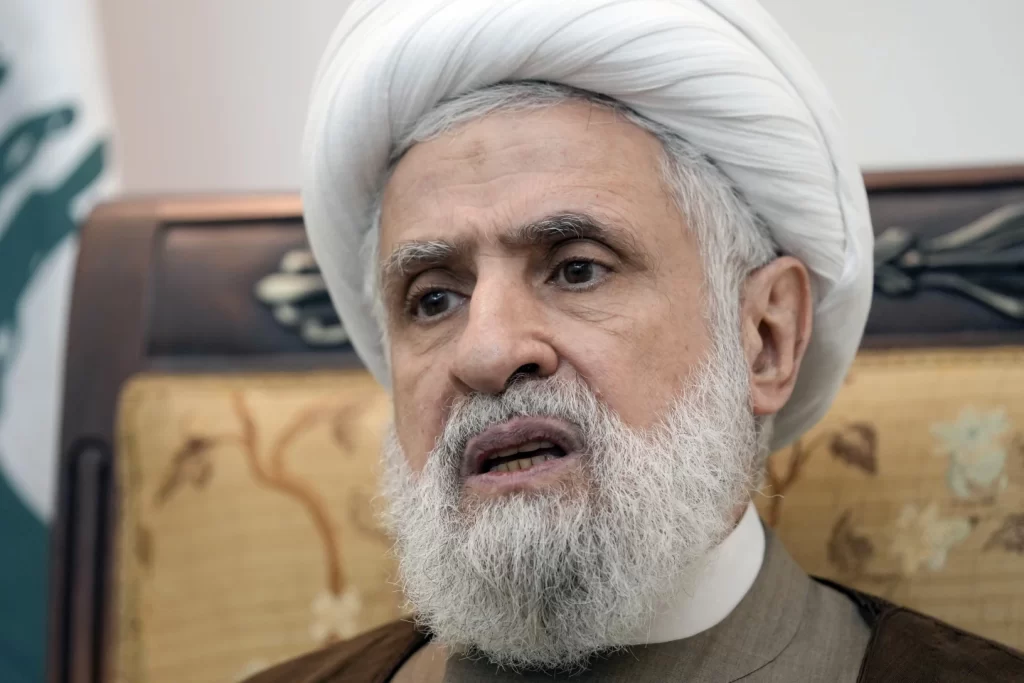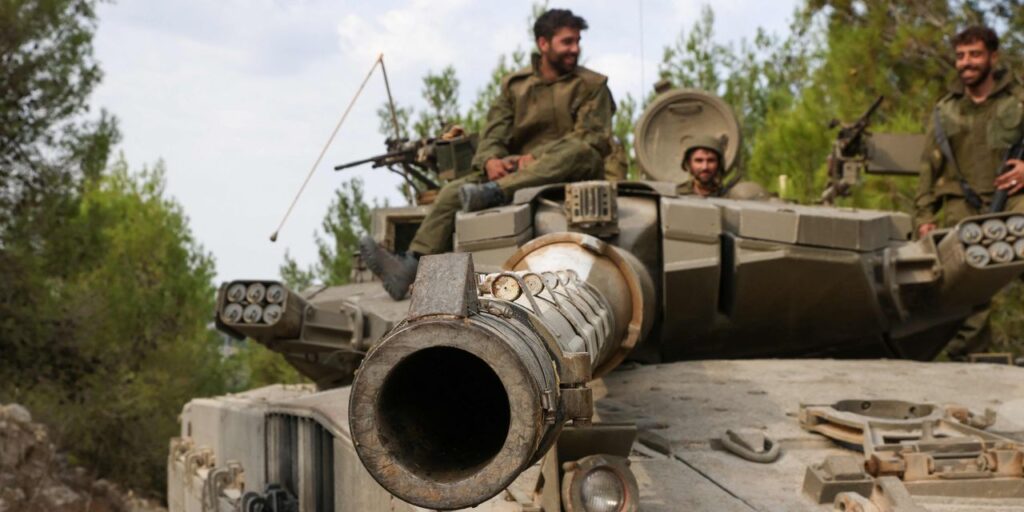Sheikh Naim Kassem, Hezbollah’s deputy leader, has declared that the militant group would cease hostilities on the Lebanon-Israel border if a comprehensive cease-fire is achieved in Gaza. This statement, made during an interview with The Associated Press in Beirut, sheds light on the complex dynamics of the ongoing Middle East conflict, reports Associated Press.

Kassem emphasized that Hezbollah’s current involvement is primarily as a “support front” for Hamas, their ally. He stated that if a full cease-fire is implemented in Gaza, Hezbollah would “stop without any discussion.” However, he expressed uncertainty about the group’s response to a partial or unclear cease-fire situation.
The deputy leader issued a stark warning against any Israeli attempts at limited operations in Lebanon, cautioning that such actions could escalate into a larger conflict. Kassem asserted that while Israel might decide on the scale of its operations, Hezbollah’s response would not be constrained by rules of engagement set by Israel.

Notably, Kassem hinted at the potential involvement of other Iran-backed groups in the “axis of resistance” should a full-scale war erupt in Lebanon. This statement underscores the risk of regional escalation inherent in the current tensions.
The Associated Press stated that the ongoing conflict has already exacted a significant humanitarian toll. Gaza has seen over 37,900 casualties since October 7, according to the local Health Ministry. The Lebanon-Israel border clashes have displaced tens of thousands on both sides, with casualties reported in both northern Israel and Lebanon.

Kassem’s interview also revealed recent diplomatic efforts, including meetings with German intelligence officials and indirect communication with U.S. envoys. However, he criticized the U.S. approach to resolving the Gaza conflict, arguing for a more comprehensive solution that includes ending the war, Israeli withdrawal from Gaza, and hostage release.
As cease-fire talks in Gaza falter and fears of escalation on the Lebanon-Israel front grow, Kassem’s statements provide crucial insights into Hezbollah’s position. Israeli officials have both sought diplomatic solutions and warned of potential military action, with some threatening destruction in Lebanon similar to that seen in Gaza.

Hezbollah, known to be more powerful than Hamas with a vast arsenal of rockets and missiles, poses a significant threat to Israel. The potential for a wider regional conflict involving other Iran-backed groups and possibly drawing in the United States adds another layer of complexity to the situation.
As diplomatic efforts continue, with U.S. and European envoys shuttling between Lebanon and Israel, the coming weeks will be critical in determining whether a peaceful resolution can be achieved or if the conflict will escalate further, with potentially dire consequences for the entire Middle East.



